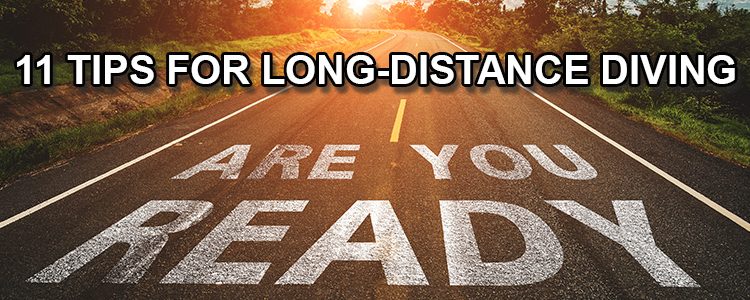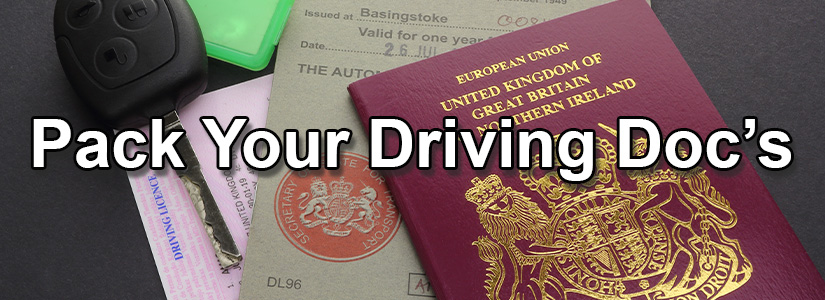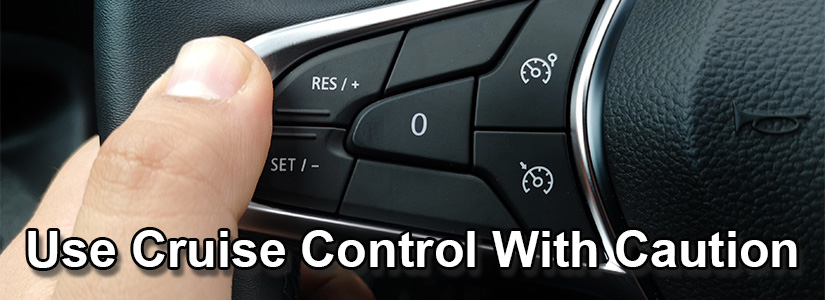
11 Tips For Long-Distant Driving
Amidst the government’s declaration that international holidays might be off the table this summer, an exciting trend is taking hold as you gaze toward the enchanting landscapes of the UK for your seasonal adventures.
Picture this: you, basking in the allure of Cornwall’s coastline, relishing Brighton’s vibrant charm, delving into Edinburgh’s rich history, or unwinding in the soothing embrace of Bath. As you embark on these journeys, there’s no denying that a stretch of miles will lie between you and your desired haven.
Now, let’s talk about those endless roads that beckon. Long drives, they’re a fascinating enigma. A symphony of emotions plays out—some thrive on the open road, others loathe the journey’s endurance. But fear not; whether you’re a road warrior or a hesitant traveller, the secret to transforming your voyage from a tense trek into an exhilarating adventure lies within grasp.
Here are the top tips from Wrexham Service Center

1. Plan Ahead
Imagine the freedom of cruising down a familiar road; you know the route like the back of your hand, and that’s why the journey feels like a breeze. But what if I told you you could experience that same even when venturing into uncharted territory hundreds of miles away?
So you’re embarking on a thrilling adventure, driving through unfamiliar landscapes, yet your shoulders remain loose and your mind at ease. How? It’s about turning those long-haul drives into enjoyable experiences. Whether you’re navigating with the help of a trusty GPS or unfolding the corners of an old-school map, getting acquainted with the path ahead will transform your journey into a stress-free delight.
No, we’re not suggesting you memorise every twist and turn. That’s what GPS is for, after all. Instead, focus on the key players—the major A roads, the expansive motorways, and those all-important junctions. Having this knowledge in your back pocket will only enhance your driving experience.
Speaking of enhancing your journey, don’t forget about the pitstops! Plotting out spots where you can refuel, savour a delicious meal, take a breather, and unwind for an hour. These strategic breaks are like mini-vacations within your road trip, ensuring you arrive at your destination with a smile and a heart full of joy.
Let’s clarify that driving should never be a source of stress. It’s time to take control and plan your route, transforming every mile into a memorable adventure. Get ready to hit the road confidently, knowing that the path ahead is yours to conquer.

2. Prepare Your Car
Are you familiar with the importance of stretching and hydrating before embarking on a marathon run? Neglecting these crucial steps would hinder your chances of reaching the finish line. Similarly, preparing your car adequately before a long journey is essential, as overlooking this aspect could yield similar consequences.
Although not all the recommendations in this list prioritise safety, undoubtedly, preparing your car does. It ensures the safety of you, your passengers, and others on the road and diminishes the likelihood of encountering a breakdown. Wrexham Service Center will perform a basic service on your vehicle before you set out. Call us on 01978265 660 to book your service.
Engaging in a comprehensive vehicle safety inspection, like the one offered by ‘Wrexham Service Centre, guarantees your vehicle’s optimal condition and minimises the risk of unexpected breakdowns. To preempt any potential issues, scheduling a service for your car before embarking on your journey is prudent.
Even if your car has recently undergone servicing, it’s still tactful to check the following elements before setting off:
– Fluid levels (AdBlue, brake fluid, coolant, engine oil, and screenwash)
– Tyre tread (In the UK, the legal minimum tyre tread depth is 1.6mm)
– Tyre pressure
– Lights
– Wipers
– Ensure your fuel tank is full before departing, as fuel prices tend to be higher at service stations
Should your tyre tread fall below the legal minimum depth, contact Wrexham Service Center for tyre replacement and stay safe on the road.
When contemplating a long-distance drive, it’s advisable to opt for vehicles that provide comfort and good fuel economy, especially given the prevailing economic conditions. If your current vehicle doesn’t meet these criteria, renting a car might be a prudent alternative.

3. Pack an emergency kit
We don’t want to put a downer on the excitement of the upcoming adventure, but we all know accidents happen “especially if you have children on board!”.
So having a basic emergency kit can be helpful and helps you deal with the unexpected. Hopefully, it will be unnecessary, but better safe than sorry!
You will know best what to include in your emergency kit, but here are a few things you might want to have.
- First aid kit
- A roadside safety kit (Reflective triangle, Hi-vis jacket, Foil blanket, Jump leads, Tow rope, Non-slip gloves, Tape etc.)
- Flashlight
- Jerry can
- Spare tyre

4. Sleep the night before
Having a good night’s sleep before driving a long distance is paramount for numerous reasons, all of which contribute to ensuring your safety, the safety of your passengers, and the well-being of others on the road. Here’s why getting adequate rest before embarking on a long drive is crucial:
**Alertness and Attention**: Adequate sleep enhances alertness and cognitive function. When well-rested, you’re more attentive, able to process information quickly and make split-second decisions – all vital skills for safe driving, especially during long stretches where monotony and fatigue can occur.
**Reaction Time**: Lack of sleep impairs reaction time, making it harder for you to respond promptly to unexpected situations on the road, such as sudden braking or swerving vehicles. A well-rested mind allows you to react faster and more effectively, potentially preventing accidents.
**Reduced Risk of Microsleeps**: Microsleeps are brief, involuntary lapses into sleep that can last for a few seconds. These can occur when you’re tired or sleepy and can have disastrous consequences while driving. Getting enough sleep helps minimise the risk of these dangerous episodes.
**Improved Decision-Making**: Sleep deprivation can impair your decision-making and judgment ability. Long-distance driving requires consistent decision-making, such as choosing the right lane, navigating complex interchanges, and deciding when to take breaks. Proper sleep supports clear-headed decision-making.
**Physical Coordination**: Sleep is crucial for motor skills and physical coordination. Long drives demand consistent and precise control over the vehicle, including steering, braking, and acceleration. Adequate sleep helps maintain your motor skills at their best.
**Mood and Stress Regulation**: Sleep plays a role in regulating mood and managing stress. Fatigue and sleep deprivation can lead to irritability, mood swings, and increased pressure. A well-rested driver is more likely to remain calm and composed, even in challenging traffic situations.
**Risk of Accidents**: Fatigue-related accidents are a severe concern, contributing to yearly road accidents, driving while tired increases the risk of impaired judgment and decreases your ability to react quickly, making accidents more likely.
**Long-Distance Challenges**: Long drives often involve periods of monotony and fatigue, mainly if you cover hundreds of miles on motorways. Proper sleep helps counteract the cumulative effects of fatigue, allowing you to maintain focus and concentration.
Prioritising a good night’s sleep before embarking on a long-distance drive is not just a matter of personal comfort; it’s a critical step in ensuring your safety, the safety of your passengers, and the well-being of everyone on the road. A well-rested driver is more alert, responsive, and capable of making informed decisions, reducing the risk of accidents and contributing to a safer driving experience.

5. Make sure you pack your driving documents
Ensure you take all required driving documents, such as Driving Licence, Vehicle Insurance, Owner’s Manual, and Roadside Assistance Contact Numbers. They may not be driving documents, but equally necessary, any permits or tickets you will need once you reach your destination.

6. Give yourself plenty of time to get there
Leaving late instantly adds tension and stress to a journey. If this happens, do not try to make up time by speeding or taking unnecessary risks.
Make sure you build in time for pit stops, to eat, take a toilet break, and allow for traffic delays, for example.

7. Use cruise control with caution
Cruise control is highly beneficial during extended trips; however, extended usage is not advised due to diminished driver engagement. Use your vehicle briefly throughout your lengthy expedition if it has cruise control.

8. Don’t forget the entertainment
Cracking the Code of Long Drives: From Kid-Entertainment to Adulting Behind the Wheel!
Let’s face it – those endless stretches of motorway can sometimes transform even the most patient souls into daydreaming zombies. And if you’ve got little children on board, boredom becomes their arch-nemesis. Fear not, for the battle against indifference has some hilarious allies!
For the junior co-pilots, it’s all about mastering the art of “I Spy” espionage, wielding colouring books like mini-Michelangelos, or unleashing the power of top trumps (move over, superheroes!). They’re trying to banish the dreaded “Are we there yet?” blues.
But hey, adults, don’t start faking car breakdowns just yet. We’ve got your back too! Enter the Epic Road Trip Playlist – a sonic symphony of your favourite hits, ready to pump up the volume and have you singing like nobody’s watching (or listening)! Caution: side effects may include air guitar solos and spontaneous dance moves at red lights.
Feeling fancy and a tad intellectual? Dive into the world of audiobooks or podcasts. Tune in, and let your brain do the driving while your inner passenger enjoys the show. Who knew enlightenment could come with four wheels and a gas pedal?
Now, a word of wisdom: before you embark on this audio adventure, wrangle your tech-savvy sidekick – your phone – and download those jams and stories like a digital cowboy. Buffering is the enemy we won’t negotiate with, and a fully charged device is your trusty steed on this road-trip rodeo.
So, gear up, download, and charge on, my fellow travellers. The road awaits, and with these tricks up your sleeve, you’ll conquer boredom with a grin wider than the horizon!

9. It’s important to stay hydrated and eat light
Here’s where many drivers go astray – they pull into a service station and hastily head for the nearest fast-food establishment. It’s a common temptation but not a favourable choice for extended drives.
Indulging in fast food and hefty meals leads to bloating, discomfort, and fatigue. These sensations are far from desirable when embarking on a long journey. Instead, opt for nourishing snacks and wholesome foods to consume en route. Although they might lack the mouthwatering appeal, they’ll enhance your concentration and diminish fatigue. Furthermore, such snacks can maintain a peaceful atmosphere with children on board.
Furthermore, remember to maintain proper hydration. Neglecting to hydrate can trigger weariness and exhaustion. Hence, it’s prudent to pack a sizable water bottle for your summer road expeditions.

10. Take a break every 100-150 miles
Embarking on a long-distance journey as the driver demands more than just navigating roads and reaching destinations. It necessitates a keen understanding of personal well-being and road safety. One crucial practice that often goes underestimated is the regularity of breaks. Pulling over and pausing every 100 to 150 miles isn’t merely a suggestion – it’s a fundamental aspect of responsible driving.
These intervals aren’t just about stretching legs and refuelling the vehicle; they’re about recharging the mind and body. Hours on the road can lead to fatigue and decreased alertness, compromising our ability to make quick decisions and react effectively to potential hazards. Stepping out of the car, breathing in fresh air, and moving around can alleviate physical tension and mental strain. It’s a chance to clear the mind, reinvigorate focus, and ensure that every subsequent mile is driven with enhanced vigilance.
Furthermore, these breaks act as checkpoints for self-assessment. Am I feeling overly tired? Are my reflexes slowing down? A brief respite allows you to evaluate your condition and make informed judgments about continuing the journey. By adhering to the 100 to 150-mile rule, drivers affirm their commitment to their well-being and the safety of fellow passengers and other road users.
Remember that time spent resting isn’t wasted in the quest for a successful and secure long-distance voyage. Instead, it’s an investment in sustained attentiveness and a safeguard against the perils of driver fatigue. So, the next time the odometer ticks over that significant mileage threshold, take that break – it’s not just a momentary pause; it’s a safeguard against complacency and a pledge to navigate the road responsibly.

11. Share the drive if you can
If you can share the driving, we strongly advise you to do so. A journey shared is a journey halved (or there or thereabouts!)
In conclusion, the significance of exercising utmost care while driving on a long journey cannot be overstated. Long-distance travel presents unique challenges that demand every driver’s heightened vigilance and responsible behaviour. Individuals protect their well-being and contribute to the overall road safety ecosystem by prioritising safety. The potential consequences of neglecting safe driving practices during a long journey are far-reaching, encompassing not only personal injuries and fatalities but also the well-being of passengers, fellow motorists, and pedestrians.
In Conclusion
In conclusion, the significance of exercising utmost care while driving on a long journey cannot be overstated. Long-distance travel presents unique challenges that demand every driver’s heightened vigilance and responsible behaviour. Individuals protect their well-being and contribute to the overall road safety ecosystem by prioritising safety. The potential consequences of neglecting safe driving practices during a long journey are far-reaching, encompassing not only personal injuries and fatalities but also the well-being of passengers, fellow motorists, and pedestrians.
Taking care when driving on a long journey is a testament to one’s commitment to responsible citizenship. This involves adhering to speed limits, refraining from distractions, and taking adequate breaks to combat fatigue. By doing so, drivers can mitigate the risks associated with long-distance travel, minimise the likelihood of accidents, and help create a more harmonious and secure road environment.
Moreover, the benefits of safe driving extend beyond the immediate journey. Adhering to safety protocols sets a positive example for fellow travellers, promoting a culture of responsible driving within society. This ripple effect can collectively reduce road accidents, saving lives and reducing the burden on emergency services and healthcare systems.
Taking care when driving on a long journey is a cornerstone of road safety, underscoring the need for continual awareness, discipline, and adherence to regulations. By embracing these principles, we can transform long-distance travel into a safer, more enjoyable experience while fostering a culture of responsible driving that transcends the confines of each journey and contributes to a safer, more harmonious society as a whole.
If you haven’t had your vehicle serviced in a while, call Wrexham Service Centre on 01978 265 660, and book a service. Make sure you book in time to allow for any unexpected problems to be rectified, for example, if we have to order parts etc.
